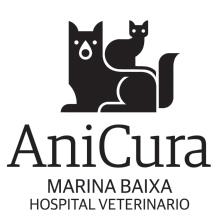
1 minute read
Brain research
rashes and dermatitis in children and animals, and in the case of dogs can even be fatal if swallowed and not treated in time.
Animal welfare associations warn that contact with the caterpillar can cause necrosis of the tongue in dogs if they lick or bite the insect, or if they accidentally step on it and then lick their paw to stop the itch.
Symptoms to look out for depend on the site of contact and can include excess salivation, reddening and swelling in the affected area.
Dog owners are strongly advised to avoid areas with pine trees at least between February and May, or alternatively to keep their pets on a short leash and not allow them to wander off.
RESEARCH in the treatment of neurodegenerative diseases in dogs allows progress in the treatment of these diseases in people.
Neurodegenerative diseases in people such as Alzheimer’s, Parkinson’s or Sanfillipo syndrome in children are comparable to some in dogs such as cognitive dysfunction syndrome in old dogs or neuronal ceroid lipofucinosis.

Researchers from the Universidad Autónoma of Barcelona (UAB) have carried out a study in dogs, over seven years, which demonstrates the safety and durability of a gene therapy strategy that opens the doors to the possible treatment of genetic neurodegenerative diseases. The study consisted of administering adenoassociated viral vectors directly into the cerebrospinal fluid, which envelops and protects the brain and spinal cord, and which also has applications in a range of neurodegenerative pathologies. They have followed the evolution of three healthy dogs that have been administered these viral vectors and seven years later they have not presented any side effects.
At the Centro Veterinario de Diagnóstico por Imagen de Levante in Cuidad Quesada, MRIs are performed to diagnose and evaluate the brains of dogs affected by neurodegenerative diseases. The image shows an MRI performed at this centre of a case of neurodegenerative disease in a dog.

In Costablanca Norte: Anicura Marina Baixa Hospital Veterinario www.veterinariamarinabaixa.com










